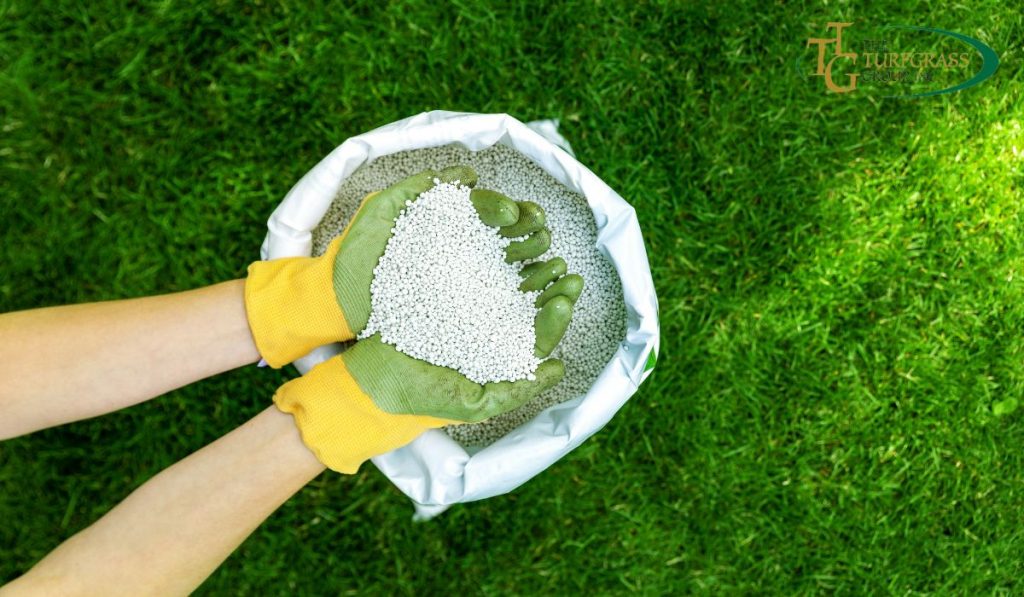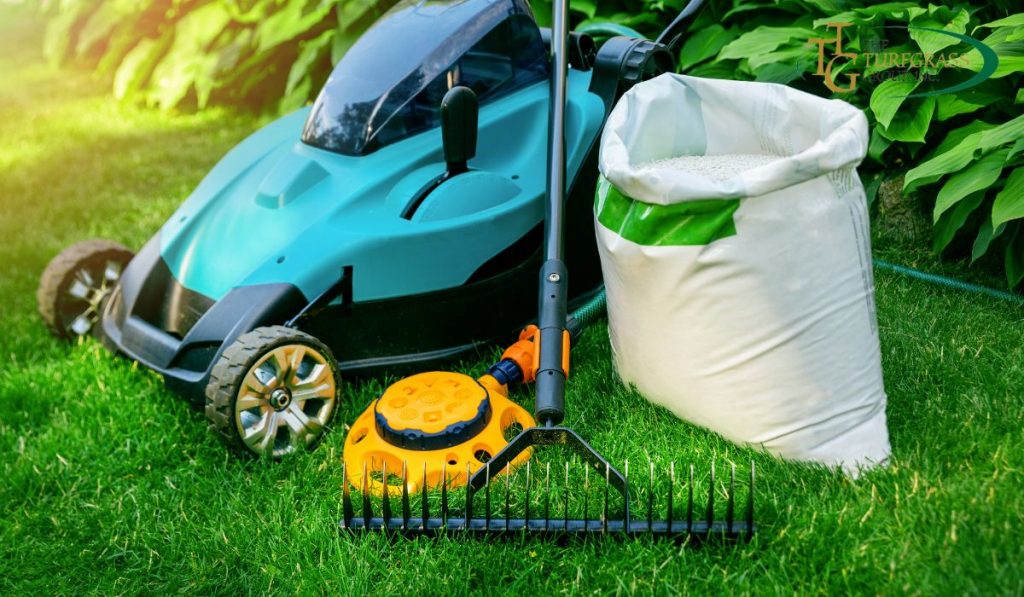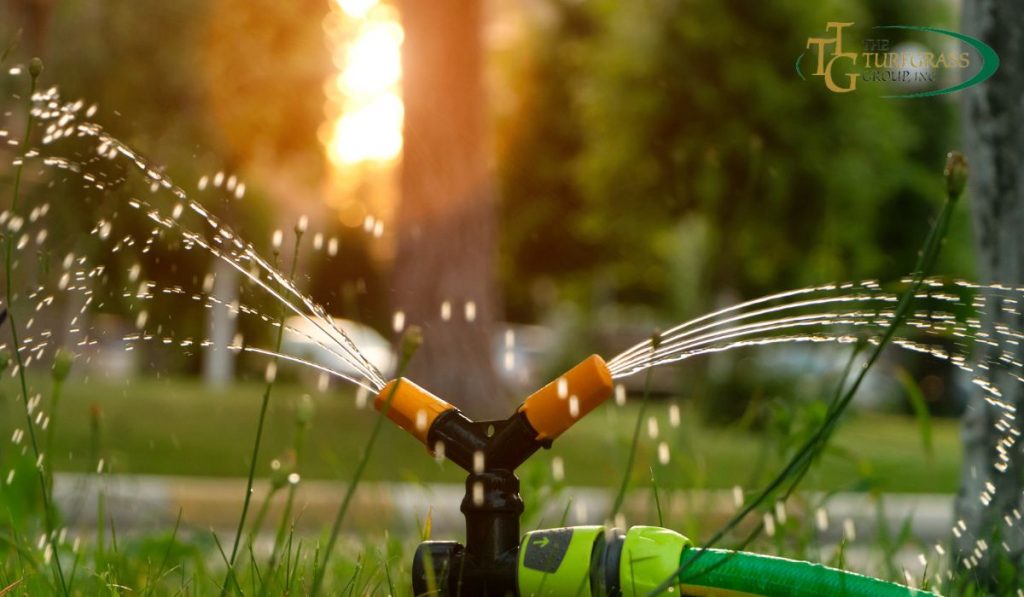
Soda and Beer have been used as homemade lawn care brews for generations.
While both may be bad for your health, they actually contain the top nutrients grass needs to grow.
Though they are an effective base for great lawn fertilizer, you can do much better with a product specifically made for your grass.
We have put together an easy-to-understand guide that will tell you everything you need to know about feeding your lawn.
Do I Need To Fertilize My Grass?
Grass can be very beautiful to look at and even comfortable to walk on, however, it can be harsh on the soil.
Lawns tend to suck nutrients out of the soil much faster than they are naturally replaced.
In some cases, the soil in an area won’t naturally generate one or more of the top nutrients grass needs to grow.
This is one of the main reasons that you should always fertilize your lawn.
Not only will you feed your grass the nutrients it needs to stay healthy, but you will also help the soil to maintain a proper balance of nutrients and minerals.
On average, fertilizing your lawn at least twice a year will keep your soil healthy while fertilizing one per season will help your grass to thrive.
The Best Way To Enrich Poorly Performing Soil
Any soil tasked with nurturing a fast-growing plant will eventually run out of nutrients.
If your soil is performing poorly, we have a few suggestions.
Poorly performing soil can be enriched naturally by composting.
Once your waste has been broken down into relatively small portions, spread it over your grass in equal parts.
The nutrients from the compost will soak into the soil which will help it to perform more efficiently.
If you want to enrich your soil a bit more, you can also use natural manure.
Animal manure may have a strong odor, but it is rich in the top nutrients grass needs to grow.
Not only is the manure good for the soil, but it is also easier for plants to process for their nutritional needs.
Of course, wood ash and grass fertilizer are also great options to bring your soil back up to snuff.
How Can I Make My Grass Greener and Thicker?
Everyone wants a vibrant and thriving lawn.
Some types of turf naturally grow thicker than others, but no matter which type you have, there is always room for improvement.
The best way to get greener, thicker grass is to fertilize your lawn on a regular schedule.
Proper fertilization will ensure that your lawn has the nutrients it needs to thrive.
Pay close attention to your watering schedule.

Too little water can stunt growth while too much water can overwhelm the roots.
Your grass should always have enough moisture but never have sogginess.
If you are fertilizing on time and watering properly, but still feel like your lawn is underperforming, consider overseeding.
Adding another layer of grass seed to your existing lawn will allow it to grow thicker naturally.
What Nutrients Does Grass Need To Grow?
There are three top nutrients grass needs to grow; potassium, nitrogen, and phosphorus.
Though all plants need these three key nutrients to thrive, grass requires higher concentrations for proper growth.
Of all three, nitrogen is the most important as that is what gives grass its vivid color and tremendous growth.
Let’s take a close look at these key nutrients, so you can better understand the role they play in the health of your lawn.
Nitrogen – this nutrient is the most important for grass.
This is what gives grass its vibrant color and helps the blades to grow straight and strong.
If there is not enough nitrogen, the grass will have stunted growth and will not have that deep green color most homeowners crave.
Potassium – this nutrient plays a big role in plant formation.
It serves as an activator for other minerals and nutrients in the grass.
Did you know that grass has more than 80 enzymes and without potassium, they won’t be activated and the grass won’t grow?
It is also essential in water use efficiency and helps the grass to withstand pests and extreme temperatures.
Phosphorous – this nutrient is critical for grass health.
It helps the roots of the grass to grow and supports the plant in times of environmental stress.
If there is not enough phosphorous in the soil, it can limit growth and even make your lawn weak.
It is important to fertilize properly because an excess of phosphorous can leak into the water supply through a buildup in the soil.
Increasing microbial activity is a healthy and effective way to ensure your grass has plenty of phosphorous without causing harm to the surrounding environment.
Will Lawn Feed Make My Grass Grow?
There are 16 nutrients that grass need for optimal health.
Lawn feed usually contains ample concentrations to help support grass growth.
Common commercial lawn feed is rich in sulfur, calcium, phosphorus, magnesium, nitrogen, and potassium.
Using lawn feed will help your grass to grow, but it is important not to double up on lawn feed and fertilizer.
Doing so may over enrich the soil which can actually have a negative effect on the health of your grass.
Lawn feed is most effective when your grass just needs a small boost to help it grow as opposed to a regular schedule of balanced nutrition.
Weed and feed products are also an effective way to help your grass grow and banish weeds at the same time.
The formula contains grass healthy nutrients in addition to pre-emergent herbicides.
This type of lawn feed will kill existing weeds in your grass, prevent the growth of new weeds, and support healthy grass growth all at the same time.
Always take the condition of your grass into account before using an all-in-one product.
Lawns that don’t have weeds should never have a pre-emergent herbicide applied.
How Often Should I Feed My Lawn?
A well-fed lawn is a healthy lawn.
Depending on the quality of your soil and the type of turf you have, you can get by with fertilizing once or twice a year.
Although the bare minimum will keep your lawn alive, feeding it more often will help it thrive.
When your soil and the roots of your grass are healthy, it will be easier to withstand extreme temperatures, mowing, pet trauma, foot traffic, and even environmental stress.
For the best results, you should feed your lawn once per season, or once every three months.
What Does NPK Do For Grass?
There are many ways to go about fertilizing your grass for optimal growth; one of the most common is the NPK method.
This is basically the ratio of the three main nutrients found in most lawn fertilizers.
N-Nitrogen, P=Phosphorus, and K = Potassium. The majority of NPK ratios are a 20-20-10 mix.
The nitrogen in the formula helps the grass to become greener, grow taller, and develop more quickly.
Potassium works to support the immune system of the grass which protects it from drought, illness, and cold weather.
The phosphorus in the formula supports the development of new lawn growth and helps keeps the roots healthy.
Justus von Liebig is the scientist who created NPK theory for lawn care and general plant growth.
In addition to the 30% of NPK in grass fertilizers, there are other nutrients that help to balance the soil and provide proper plant care.
The Proper Way To Fertilize With NPK
It may surprise you to know that most homeowners actually fertilize their lawn.
This is often due to not knowing it’s required, or simply not having the time to get it done.
In addition, many property owners simply don’t know the proper way to fertilize their grass, so they skip it altogether.
Lack of proper fertilizing leads to poorly performing lawns that are less vibrant, sparse, and often full of discolored areas.
Instead of fighting with your lawn all year only to replace it once it fails, hire a professional to care for your yard instead.
If you are unable to hire a lawn care service, learning the proper way to fertilize with the NPK method is the next best thing.
A well-fed lawn is not only healthier, but it will also be better equipped to deal with pest and environmental stress.
Most soils under lawns require regular fertilizing in order to maintain the right balance of nutrients for proper growth.
Grass has a much bigger appetite for certain nutrients, specifically NPK (nitrogen, potassium, and phosphorus).

They suck these nutrients out of the soil much quicker than they are replaced naturally.
Using the NPK feeding method will keep your lawn healthy and prevent the soil under your lawn from being depleted of vital nutrients.
Proper fertilizing is as simple as spreading a balanced NPK fertilizer on your lawn once each season after your lawn has been mowed.
For the best results, always start with the best turf grass varieties like TIFTUF Bermuda Grass or Zeon Zoysia.
Conclusion
In summary, maintaining a healthy and vibrant lawn requires understanding the importance of proper lawn care and the essential nutrients that grass needs to thrive.
While soda and beer may contain some of these nutrients, dedicated lawn fertilizers are a more effective choice.
By regularly fertilizing your lawn and following a few key practices, you can achieve the lush, green, and robust grass you desire.
Frequently Asked Questions (FAQs):
Do I Need To Fertilize My Grass?
Yes, you should fertilize your lawn regularly to provide essential nutrients to the grass and maintain a proper balance of nutrients in the soil. Fertilizing at least twice a year helps keep your soil healthy, while seasonally fertilizing promotes lush grass growth.
How Can I Enrich Poorly Performing Soil?
To enrich poorly performing soil, consider natural methods such as composting and using animal manure. Composting breaks down organic waste into valuable nutrients, while animal manure provides essential elements for plant growth. Wood ash and grass fertilizer are also beneficial for revitalizing soil.
How Can I Make My Grass Greener and Thicker?
Achieving greener, thicker grass involves proper fertilization, maintaining an appropriate watering schedule, and considering overseeding. Fertilizing ensures the grass receives the nutrients it needs, while proper watering is crucial for growth. Overseeding can naturally enhance thickness.
What Nutrients Does Grass Need To Grow?
Grass requires three main nutrients: nitrogen, potassium, and phosphorus. Nitrogen is vital for color and growth, potassium supports plant formation and resistance, and phosphorus helps root development and stress tolerance.
Will Lawn Feed Make My Grass Grow?
Lawn feed contains essential nutrients for grass growth, including sulfur, calcium, phosphorus, magnesium, nitrogen, and potassium. Using lawn feed is effective but should be balanced with proper fertilization to avoid over-enriching the soil.
How Often Should I Feed My Lawn?
The frequency of lawn feeding depends on your soil quality and grass type. While feeding once or twice a year can sustain your lawn, feeding seasonally or once every three months is optimal for maintaining a thriving lawn.
What Does NPK Do For Grass?
NPK represents the ratio of key nutrients in lawn fertilizers: Nitrogen (N), Phosphorus (P), and Potassium (K). Nitrogen promotes growth and color, potassium boosts resistance, and phosphorus aids in root development. A balanced NPK ratio is crucial for lawn health.
What’s the Proper Way To Fertilize With NPK?
Properly fertilizing with the NPK method involves spreading a balanced fertilizer on your lawn once each season after mowing. This method ensures that your grass receives the necessary nutrients, leading to a healthier, more resilient lawn.